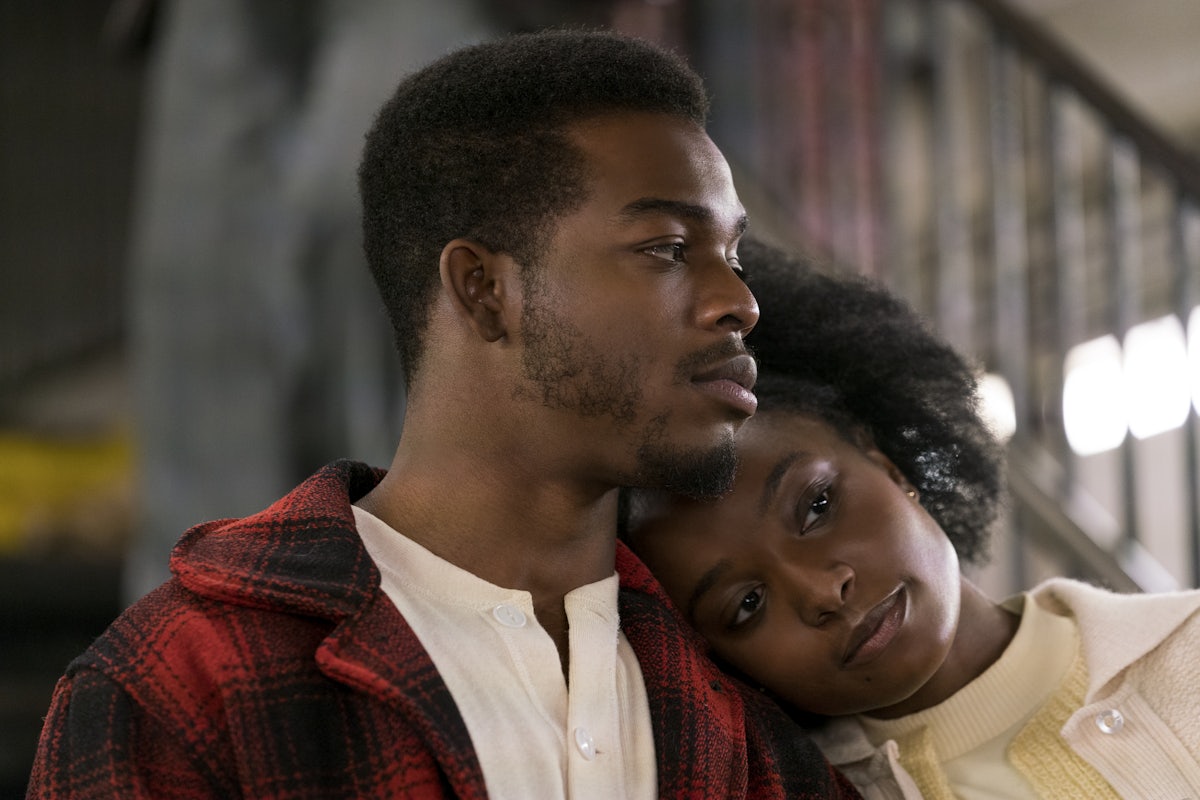Can 'Beale Street' Survive #MeToo?
 |
| Tish and Fonny (Stephan James - left; KiKi Layne - right) |
 |
| Emily Rios as Victoria Rogers |
Halfway through the film, the camera slowly pans to Fonny's accuser, Victoria Rogers, with an ominous score billowing in the background. Victoria is not allowed to speak for herself in this scene, instead Tish is telling her story. Tish does not vilify Victoria, but it places her in stark contrast with the love that binds Tish and Fonny and as the catalyst for tearing them apart. Tish details how Officer Bell (Ed Skrein) may have coerced Victoria into choosing Fonny as her rapist as he had a vendetta against him from a prior storefront altercation. During the trial, Sharon (Regina King), the mother of Tish, conjures up a plan to get a confession from Victoria as she fled back home to Puerto Rico.
| Sharon (Regina King) arriving in Puerto Rico to clear Fonny's name. |
Trouble arises with presenting this narrative in today's climate as we should believe the victim and acknowledge the trauma they may have experienced. James Baldwin wrote If Beale Street Could Talk during the culmination of the Civil Rights Movement and a tumultuous period in American history. With the events of the late 1960s and 1970s being the backdrop of this story, the tale of an African-American male being falsely accused of rape was common during this time.
While Baldwin's work was beautifully captured by director Barry Jenkins, we have to look at 'Beale Street' as being a product of its time and to not see it as a vehicle to discredit victims of rape. This narrative becomes complicated during a time where powerful men are being taken down for sexual transgressions used to usurp women in the workplace. Unlike Baldwin's novel, we have become more attuned to the victims' stories which would not have been given attention nearly fifty years ago when it was written.
I feel like If Beale Street Could Talk should be seen as a product of its time, and also help shed a light on injustices still being faced by African-Americans today. It should be viewed as a story of love surviving despite its trials and tribulations.


Comments
Post a Comment